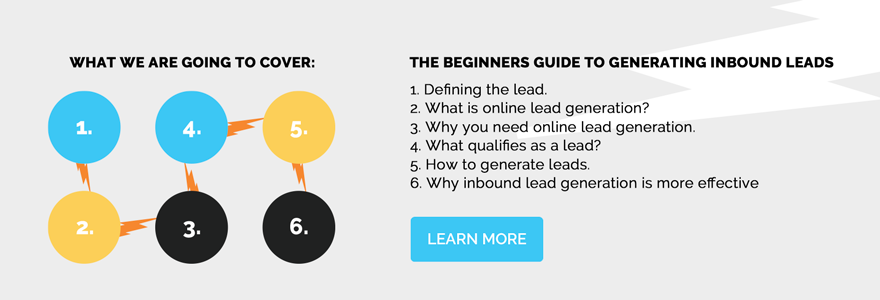How Long Should Blog Posts Be in 2020?
Wondering if your blog posts are too long, not long enough, or just right? While it’s difficult to quantify the value of every blog post, there are best practices in 2020. We describe the advantages of embracing a target so that you can get the most out of your blog posts.
Should I Be Writing Long-Form Blog Posts?
The best part about writing long-form blog posts is that you can provide all the information your audience needs while answering all their questions. Other benefits include:
- Demonstrates that you’re an authority in your niche
- Readers spend more time on your website, and could potentially review more of your content
- Longer posts (greater than 1,500 words) get more shares on social media
- Improved ranking in search engine results, which includes greater use of relevant keywords, adding internal links, and making sure your website is SEO friendly
In order to rank well in search engines, a blog post should contain at least 300 words. However, long posts of 1000 words or more will rank more easily than short posts, with posts around 2,500 words ranking the best.
In 2020, long blog posts are being placed in the same category as magazine and newspaper articles, which means that readers expect content that’s just as polished. In order to have your blogs appeal to your audience, you need to meet their high quality and professional standards and expectations.
How Long Does It Take to Write a Long-Form Blog Post?
Newer writers might struggle to create a 1,500-word blog post in 3 to 4 hours, simply because they’re unfamiliar with the topic. Experienced writers that are experts on the subject matter might only need an hour to create the same content.
Some tips to help shorten the time to write a long-form blog post include:
- Complete research before starting to write
- Create a detailed outline to help stay on track
- Remove distractions and isolate yourself from the outside world
- Draft your blog using software tools instead of writing it directly on your website
Keep in mind that your blog post shouldn’t necessarily be about hitting a definitive word count. Readers will stay more engaged with your content when it’s useful, unique, easy-to-understand, and accurate.
Create Value with Your Blog Post
Write longer blog posts to benefit your readers and drive traffic to your website, but don’t obsess over word count or reaching a magical ideal post length. Simply put, there’s no single perfect blog length for every topic.
Instead of trying to provide long-form content just for appeasing search engines, make sure your target audience can find your blog by using search engine optimization (SEO) techniques. Some of the best practices for SEO for any length of post include:
- Find and use the right keywords applicable to your content
- Add alt-text
- Achieve domain and topic authority
- Accurately utilize backlinking
- Capture Google's featured snippet
- Integrate media-rich content into the body of the blog post, such as videos or social media embeds
Unfortunately, there's a difference between posts that generate traffic and those that generate quality business leads or new contacts. Generally, posts that are searched for by a wider audience get more traffic, which sometimes points to generic content rather than value associated with a specific business.
If the intention of your blog post is to build your contact database, writing specific content works in your favor. Longer posts relative to your business will reinforce your knowledge and authority on a subject, especially on topics for very specific audiences.
Why Shorter Blogs Are Often Appealing
While it’s common to think that today’s consumer has a dwindling attention span and seeks instantly gratifying material, content should be long enough to get the message across. If that means reducing your blog to a shorter version, then consider making your content as concise as possible.
If your content provides an incredible experience for your audience, they will undoubtedly come back to your website for more. Writers that have success with shorter content usually have:
- A larger audience, capable of sharing content with each other
- Intriguing material that readers can’t find anywhere else
- Eye-catching and compelling images to accompany their posts
- Keep the focus on a single idea, rather than convoluting posts with multiple arguments
- Consistent post times, usually daily
It is often difficult to reach audiences with shorter blogs, and readers can struggle to stay engaged if the content misses the mark. Based on the frequency of your blogs, an unread post can disappear without a trace and miss potential readers that might not follow your blog as quickly as you post.
The Benefits of High Frequency
While creating long and short-form content has different benefits, so does the frequency of your posts. Depending on what your goals are for your website, you may alter your schedule to satisfy the needs of your audience.
Traffic Generation
If your main goal is to increase traffic to your website, you’ll want to post as frequently as possible. While it can be challenging to brainstorm, create, and promote a new post every day, making a schedule and planning ahead can ensure that your frequency stays consistent.
It’s important to stick to a routine when posting new content. If your loyal audience is expecting new posts every day, then they may look elsewhere and stop visiting your site if you suddenly post weekly.
Brand Promotion
When the focus turns to building your brand, offering diversity is more important than high frequency. Building brand awareness gives you a chance to provide useful information to a smaller target audience and create value for the time they take to review your content.
Provide branded graphics, statistics or fun facts about an industry to build loyalty. Mid-size or smaller businesses that are building their brand typically post original content every week or so.
The good thing about some blogs is that they continue to serve your business months, even years after being posted. As long as your business stays operational, you may find that clicks from organic searches increase over time.
Long Blogs vs. Short Blogs
While there are benefits to long posts and short blogs, making sure you provide content for your audience is key to success. Gaining a strong influence on your audience may require you to consistently post long content, or it may require mixing up length of your material.
Create content valuable to your audience to help:
- Build your network
- Have new clients discover your business
- Receive immediate feedback
- Learn more about your target audience
- Gain Influence and establishing yourself as an expert in your field
- Improve your brand
Whether you’re writing as an individual or for a business, when readers search for you online, you’ll want to make sure they get an accurate picture of what you’re all about. Stay consistent with your content instead of worry about the length of your blogs.
Outsource Your Work With ThinkFuel Marketing
ThinkFuel Marketing delivers inbound marketing, sales automation, lead generation, marketing automation, and digital marketing services for B2B companies across the United States and Canada.
When it comes to inbound marketing, the most critical component is always great content. Whether you need blog writing, whitepapers, social media, video, press releases, or more, we write content that converts.
Contact us today to schedule a consultation, and grow your B2B business through online marketing.
Share this
You May Also Like
These Related Stories

How Your Blogging Tactics Have to Change in 2020

How to Use Google Ads to Drive Growth in 2020 - Part 2


